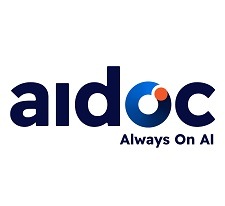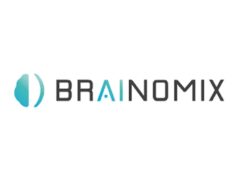 Aidoc has announced the launch of its “revolutionary” Full Brain solution, which the company claims will significantly expand the anatomy analysed by artificial intelligence (AI) to identify suspected strokes, allowing for identification and care coordination of patients with medium vessel occlusions (MeVOs), as well as posterior and anterior large vessel occlusions (LVOs).
Aidoc has announced the launch of its “revolutionary” Full Brain solution, which the company claims will significantly expand the anatomy analysed by artificial intelligence (AI) to identify suspected strokes, allowing for identification and care coordination of patients with medium vessel occlusions (MeVOs), as well as posterior and anterior large vessel occlusions (LVOs).
An Aidoc press release states that the Full Brain solution represents a significant advancement in medical technology aiding patient care, being the “first and only” AI technology to identify suspected posterior and anterior LVOs and MeVOs.
The prevalence of these newly covered conditions, posterior LVOs and MeVOs, is significant across the globe, the release continues, and their addition to Aidoc’s AI-powered stroke identification technology will enable approximately twice as many patients to receive faster access to life-saving therapy.
“AI has shown remarkable success in enhancing workflow for patients with anterior LVOs, nearly halving the time to treatment,” said Brian Mason (University of Illinois Champaign, Champaign, USA). “However, this is just the beginning. With Aidoc’s Full Brain solution, we can now broaden these advancements to benefit a significantly larger patient population, leading to improved care and ultimately better patient outcomes.”
Extending beyond acute ischaemic stroke, the Full Brain solution employs diverse AI technologies—such as image-based identification and natural language processing (NLP)—to identify and orchestrate care for patients suffering from intracerebral haemorrhage (ICH), subdural haemorrhage, and brain aneurysms, making it the “most complete” neurovascular AI solution, the release adds.
Aidoc’s Full Brain solution is delivered through the company’s proprietary operating system (aiOS) that enables organisations to reliably deploy AI solutions in high volumes, and overcome the challenges associated with legacy information technology (IT) systems and separate physician workflows. The aiOS “seamlessly integrates” with existing IT infrastructure, enabling the scale needed to realise the full potential of AI in healthcare and, according to the company, is also the only platform integrated into electronic health records (EHR).
“AI continues to drive significant gains and contributions in addressing the challenges health systems are facing,” said Aidoc CEO Elad Walach. “Our groundbreaking Full Brain solution is propelling AI into new and needed territories, and proving impact to facilities by cutting the time to treatment nearly in half for twice as many patients. Our vision is to continue pushing boundaries, transforming the lives of a significantly larger patient population, elevating the standard of care, and driving remarkable improvements in patient outcomes.”
Aidoc’s Full Brain solution is being showcased during the ongoing Society of NeuroInterventional Surgery (SNIS) annual meeting (31 July–4 August, San Diego, USA).









